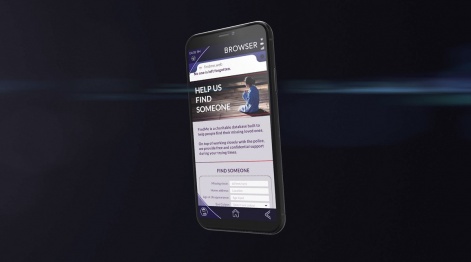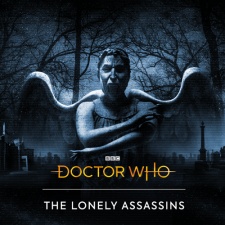The process of creating a game is difficult, long, and often stressful, but it's one that can reap many rewards alongside actually seeing your ideas come to life.
No matter the size of the game or how long it ultimately takes to make, each new title involves a lot of hard work, tough decisions, and a little bit of luck before it even gets out the door and onto devices. And in the current mobile and handheld games market, that's only the first step to making the title succeed.
To highlight all of the extensive work that often goes on unseen in the background, PocketGamer.biz is reaching out to developers to learn more about the general rigmarole of releasing a video game, with our 'Making Of' series.
This week, we spoke with Maze Theory CEO Ian Hambleton and Kaigan Games co-founder Jeremy Ooi ahead of the launch of Doctor Who: The Lonely Assassins on March 19th, as well as what it was like taking on the longest-running sci-fi show in television history.
PocketGamer.biz: Can you start off by telling us about Doctor Who: The Lonely Assassins?
Ian Hambleton: The Lonely Assassins is a narrative-driven mobile game that puts the player at the centre of their own Doctor Who mystery, finding clues and unravelling a sinister series of events taking place at Wester Drumlins, the house that featured in the critically-acclaimed episode “Blink”.
Players get to work closely with Osgood, a fan-favourite character from the show and face off against one of the most iconic Doctor Who monsters: the Weeping Angels.
Where did the initial idea for the game come from?
Ian Hambleton: We’d been fans of the found-phone genre for some time and seen Kaigan’s work on Sara is Missing and Simulacra. We were coming to the end of production on Doctor Who: The Edge of Time and in the studio we were kicking the idea around about creating a trilogy of Doctor Who games, across different platforms and devices.
We wanted the games to all be connected within a story universe, but also playable independently.Ian Hambleton
We wanted the games to all be connected within a story universe, but also playable independently. So we reached out to Kaigan to see if they were interested in working with us on it, and they said yes pretty much straight away.
How long did development take, and how many people worked on the game?
Jeremy Ooi: I think we started pre-production in March last year with a full-time team of six and additional help coming in at specific points to work on music, special effects and writing.
Ian Hambleton: All the video production, talent and shooting was handled in the UK in coordination with the BBC. We actually had to do all the shooting during the height of Covid-19 restrictions so it proved pretty challenging. The base team at Maze, once we’d agreed on the concept and script for the game, was pretty small.
What was the biggest challenge you had to overcome during development?
Jeremy Ooi: This is our first co-production with another studio and our first major licensed IP. Adapting the Doctor Who universe into our style of “found phone” games was a challenge at first, but the process between working with Maze Theory and BBC was smoother than we anticipated.
Ian Hambleton: I have to say this is one of the best co-development projects we’ve been involved in and I have to give huge credit to Kaigan for this. It has just been really seamless all the way through; both teams have played to their strengths and that consistent positivity probably comes across in the quality of the finished game.
How did the partnership come about with the BBC?
Ian Hambleton: We’ve been working with BBC Studios since we launched Doctor Who: The Edge of Time. This was really well received by fans and I think the BBC were also really impressed by the team’s approach.

On the back of that success, we pitched them the idea of two more games: The Lonely Assassins and The Edge of Reality, the console game coming out later this year. We see the three games working together in a sort of non-linear trilogy, all set in the same time and universe as each other, but not in a specific order that the player has to follow.
Are you fans of Doctor Who? Do you have a history with the 57-year old sci-fi series?
Ian Hambleton: I started to enjoy the show in the David Tennant era, so in many ways, I’m a bit of a Doctor Who newbie, but we have a lot of Doctor Who fans on the team. I think you have to be really into an IP if you’re going to make a credible game that fans are really going to enjoy. Otherwise, it would be a bit like being a chef in a restaurant that doesn’t like food.
As a studio, we’ve tried to build up a really strong bond with the community and fanbase, initiatives like 'IN>THEORY', our fan playtesting group, have been critical in getting feedback and shaping the games.
At what stage in development did you feel you had a game that you were happy with?
With the antagonist being the Weeping Angels, there is a certain tone and feel when it comes to the episodes that feature them.Jeremy Ooi
Jeremy Ooi: With the antagonist being the Weeping Angels, there is a certain tone and feel when it comes to the episodes that feature them. Namely the (in the Doctor’s words) “timey wimey” time-travel elements and the “don’t blink!” jump-scare moments. We wanted these two aspects to really come through in the game, and once we settled on the mechanics that best represented that, we knew we had something we were happy with.
Ian Hambleton: Pretty early on we knew we had the crucial ingredients for a strong game, but it was when Kaigan produced the first full playthrough and we started to integrate the video and content elements, then everyone started to get really excited about it.
Why do you feel March 19th is the right time to launch globally?
Ian Hambleton: After the London Games Festival chose The Lonely Assassins as part of their Official Selection, we were keen to tie the launch of the game to the festival. As a UK-based studio working with a world-renowned British franchise, alongside a celebrated international development team, this made a lot of sense to us.
Plus, with the reach the event has and their collaboration with Apple, it’s certainly a great opportunity for the game to be seen by as many people as possible.
The Doctor Who fandom is one of the most passionate out there, how do you look to create a game that meets their expectations?
Jeremy Ooi: Having a Whovian on our team helped big time. One of our artists, Rex, is a big fan of the show. Also, being able to consult with BBC Studios and Maze Theory on the story and gameplay elements ensures that fans of the show will enjoy it.
Ian Hambleton: There is pressure of course, but I think we’ve embraced that up to now. For us, the key thing about making IP-based games is not crowbarring in gameplay mechanics that don’t suit the genre.
At our core, we’re immersive storytellers who suit dramatic narrative adaptions of TV and film franchises. This game works because it uses the elements of gameplay from the found-phone genre, but ultimately it does feel like you’re living out a new episode of the show that builds on the legacy of “Blink”.
Along the way, we’ve had to make decisions to maintain that integrity. For example, the reason it’s a premium mobile game, rather than freemium, is that we wanted players to be able to pay a one-off price and then fully immerse themselves in the story, without having to make purchases to continue playing. Ultimately, we can offer a much more compelling game and fan experience as a paid app.
Was the game soft-launched? If so, what did you learn from the soft launch period, and what were the biggest changes you enacted as a result?
Ian Hambleton: We did a lot of playtesting with the team and our 'IN>THEORY' group. But also I guess that tends to be the way a lot of freemium games do it, where they are adjusting their analytics settings and optimising the game for in-app purchases. We’re being a bit more traditional here and just focusing on a truly high-quality, story-based game, so hopefully, there’s a bit less to get wrong.
Has the Covid-19 pandemic impacted ongoing development in any way?
Jeremy Ooi: When the project started, we were already working on home three out of the five working days. Transitioning to working from home full time did impact us, but nothing major. We just had to make sure that everyone has the tools to work online and that was pretty much it.
Ian Hambleton: We were 13 people when Covid-19 started and are 33 and counting now. We’ve evolved during the Covid-19 pandemic and consequently become a ‘Remote First’ studio; we’re going to continue to work in this way and we’re seeing some real benefits for the team and our products. Whether that’s people being able to choose where they work from, commuting less, or for us as a business being able to hire talent from all over the world.
If fans and players get out and buy it, then we’re able to announce the sequel pretty soon after launch.Ian Hambleton
What can you tell us about your plans in terms of updates?
Ian Hambleton: We’ve already got some ideas for sequels to the game. There’s definitely an appetite to do this, but of course we need to see how the launch goes and what players think of the game. Hopefully though, if fans and players get out and buy it, then we’re able to announce the sequel pretty soon after launch.
For the studio to consider Doctor Who: The Lonely Assassins a success, what needs to happen?
Ian Hambleton: What a great question! I guess there are two critical metrics for me: Do Doctor Who fans love the game and have we done justice to an IP we are just as passionate about? We’ll hopefully see that quickly in the comments and reviews, but the response so far has been incredibly positive.
Of course, as a young studio, acclaim is important, but equally so is commercial success. We are taking this found-phone experience into a number of platforms including PC and Nintendo Switch, which we hope will deliver exciting experiences for fans on those platforms and ultimately translate into a successful product. This will in turn allow us to invest in making powerful narrative-driven gaming experiences in the future.
What can you tell us about your future projects? Do you think you would work with the Doctor Who IP again?
Ian Hambleton: We have the console and PC-based game Edge of Reality following up very soon after The Lonely Assassins. I think the simple answer is we’d love to do more games within the Doctor Who space; if the fans like the games and they get out and buy the games, we will be able to make more content for them. In that sense, it’s a real partnership between us and the players.





















